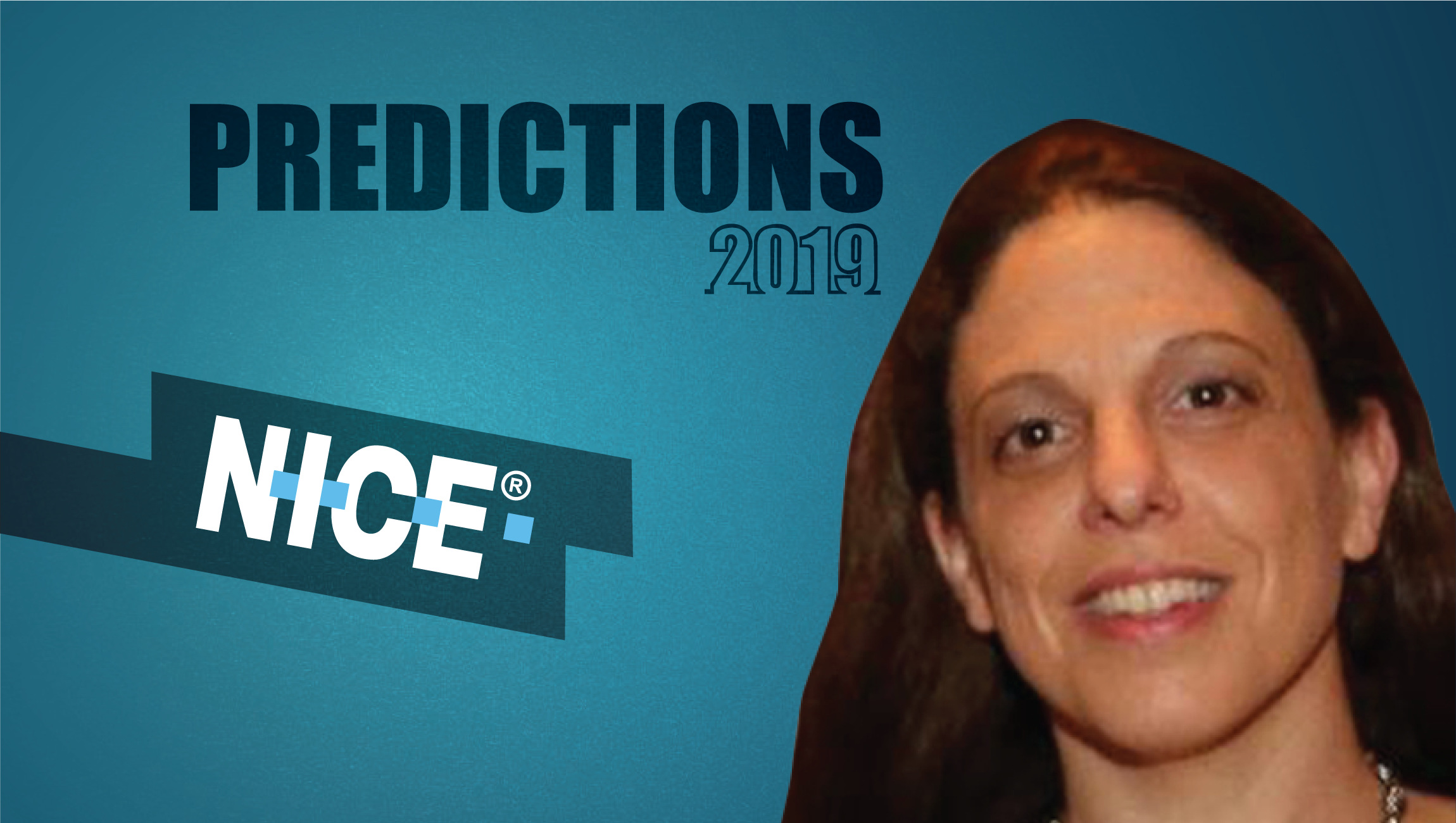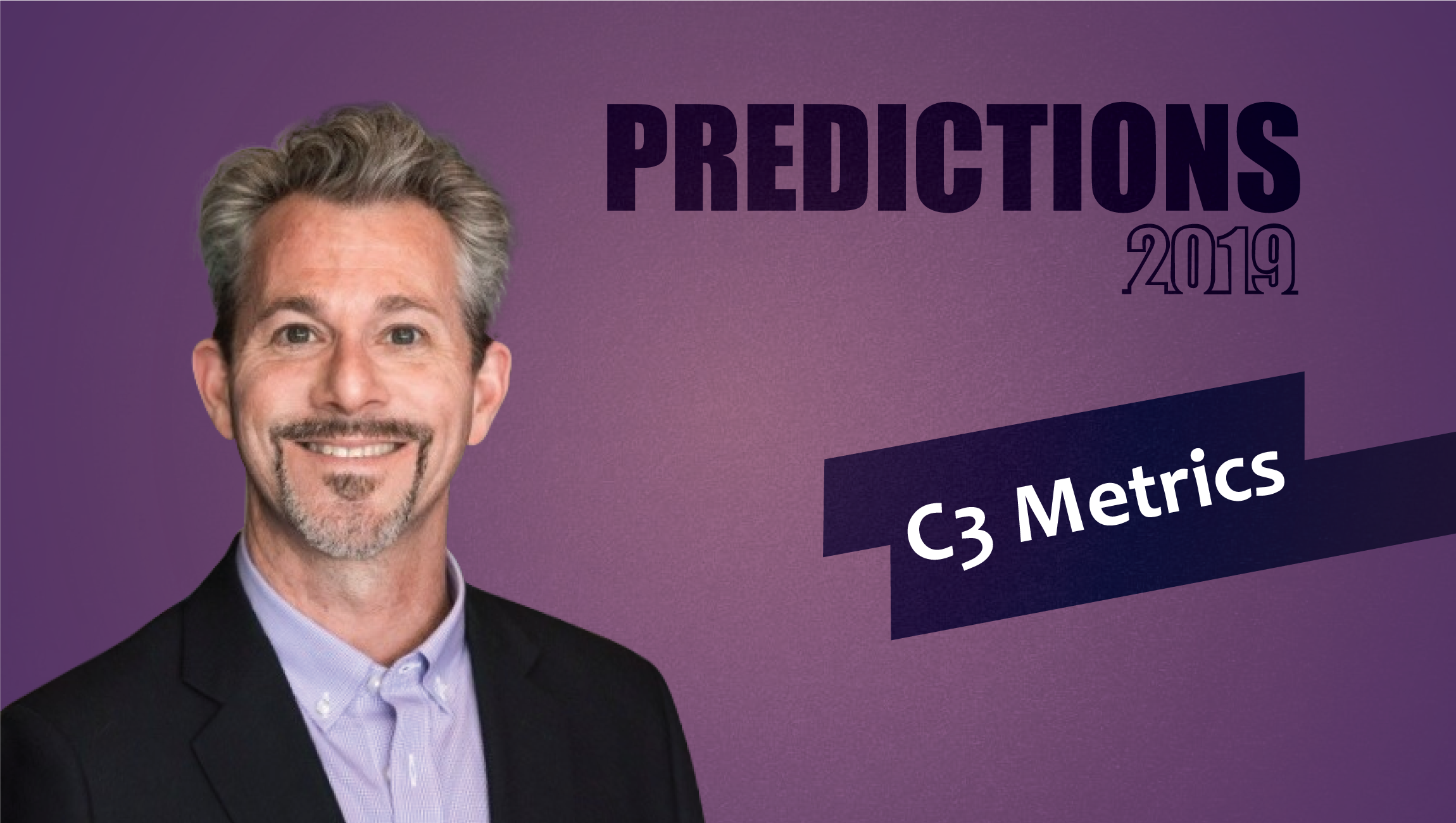Tell us about your role at NICE and how you leverage technology to manage your team and complete tasks you are responsible for.
I lead the global marketing strategy for NICE, reinforcing our company’s mission of perfecting customer experience and preventing financial crime. This includes overseeing all go-to-market strategies, including demand generation, brand awareness and field activities.
Technology plays an important role in every aspect of my job, from executing marketing activities to enhancing team collaboration. Given that we are a data-driven organization, we use Marketing and Sales solutions to help us cultivate measurable, KPI-driven goals. We also use tools like Microsoft Teams to stay connected and share ideas in real-time, creating a marketing community across all our divisions.
What challenges and opportunities for growth did you and/or NICE identify at the start of 2018? What has been your progress to date?
Our cloud customer experience platform, CXone, was a big marketing focus for 2018. CXone is a fully integrated and open-cloud contact center platform that empowers organizations to provide exceptional customer experiences. In 2018, one of our goals was to strengthen the positioning of CXone as an enterprise-grade solution and create more awareness around the platform. We accomplished this through a series of efforts, including launching an innovative advertising campaign with celebrity chef Gordon Ramsay who was featured in our ‘Don’t Compromise on Customer Experience’ featured videos, as well as a cookbook that guides our customers through ‘The 5 Essential Recipes for Digital Transformation Success.”
What has been the most decisive moment you’ve witnessed in your industry in 2018? How did it impact your decision-making, leadership style and understanding of the customer experience industry as a whole?
Without a doubt, the General Data Protection Regulation (GDPR) going into effect was the most transformative moment of 2018. Under GDPR, customers must consent to sharing their data by responding to an email, checking a website box, etc. The need for consent forced marketers to stop and think about how they are communicating with customers — even those outside the European Union. While personalization is not a new trend, marketers had to take individualized communication one step further and ensure that their content is tailored to each customer’s unique interests. For the marketers that embraced the GDPR, we saw stronger, healthier connections.
How do you see AI and Machine Learning technologies further impacting the customer service industry and marketing/sales roles?
The workspace of our customer base is rapidly changing with the introduction of new, innovative technologies. The idea of a hybrid work environment between humans and robots is no longer an abstract concept. Instead of fearing digital transformation, organizations are embracing it and beginning to understand how technology can empower people to do their job better.
Robotic Process Automation (RPA) is the perfect example of technology that is transforming customer service. The average back office employee spends 80 percent of their day on mundane activities, like filling in forms, making repetitive calculations, or processing customer orders. RPA allows organizations to identify these time-consuming, routine tasks that are sensitive to human error and create automated workflows to execute these processes. Humans can focus on critical thinking tasks, helping them to become more strategic in their role.
For us as marketers, I see the usage of advanced technologies, and AI specifically, as the best and only tool to create true targeted and personalized marketing campaigns. I believe that we will see increasing adoption of these technologies both for B2B and B2C marketing strategies.
What does the technology partner/customer roadmaps look like for 2019?
Our business strategy for the past few years has been focused on innovation in data and cloud transformation, alongside a diligent M&A strategy. Infusing analytics into all of our solutions is also one of our pivotal strategies. In 2019, NICE will remain very focused on three strategic pillars: cloud, automation/AI and analytics. We will continue to give our customers the right solutions to drive insight, action and engagement, delivering a personalized and consistent journey across all channels and touch points.
What do you think is next for Sales and Marketing in terms of cloud adoption?
Across the globe, organizations prioritized cloud adoption in 2018 and we can expect that to continue next year. While previously our marketing efforts were focused on educating the market about the advantages of the cloud from a technical and financial model perspective, I believe that we will see a significant shift to a discussion around the real business benefits that can only be achieved when using cloud-based solutions. We’re seeing this very clearly as the dialogue with our customers and partners is now around benefiting from an ecosystem and rapid innovation, both of which are available strictly on top of an open cloud platform.
What do you think about AI-as-a-Service and where is it going in 2019?
Enterprises across the globe have been curious about AI, but many would prefer to wade their toes in the shallow end of the pool versus dive all the way in. Gartner’s 2018 CIO Agenda Survey found that only four percent of CIOs have implemented AI technology, but 46 percent have developed plans to do so. AI-as-a-Service is essentially an outsourcing option, allowing companies to test AI without investing too much money into a solution. In 2019, I believe companies will utilize AI-as-a-Service to further explore how AI can impact their business needs.
What was the most impactful lesson you learned in 2018? How do you plan to implement this lesson in 2019?
In 2018, we saw the impact of our Account-Based Marketing (ABM) efforts really pay off. Those results have led me to implement new technology and tactics for 2019 that support an ABM strategy. The GDPR also drove us to revisit our strategy for customer communications, and validate our personalization efforts.
These trends extend beyond NICE. Many B2B marketers adapted their skillsets this year to focus on data-driven strategies that support ABM and personalization. With personalization now becoming the norm — not the exception — B2B marketers increased their adoption of AI and ML solutions to meet these needs at scale in the next year. Marketing departments also hired more technical professionals and upskilled their current workforce to handle this new technology.
Are there any industry leaders you’ve worked with that are particularly of note? How have they informed your own leadership skills?
I had the opportunity to work with Gordon Ramsay when implementing our ‘Don’t Compromise on Customer Experience’ campaign this year and he left a lasting impact. Gordon is someone who hasn’t compromised on his career and always strives for excellence. I was able to learn from his commitment and drive to deliver the best results. As we gear up for our annual conference in April this year, I’m looking forward to working with our keynote speaker, Ashton Kutcher, who is a passionate venture capitalist and philanthropist in addition to an actor.
Name a leader in the industry whose predictions you would like to see here.
I’d love to hear predictions from Satya Nadella, Chief Executive Officer of Microsoft. His views of cloud and AI are extremely relevant and it will be interesting to hear his projections following his recent statement that “AI is going to be one of the trends that is going to be the next big shift in technology. It’s going to be AI at the edge, AI in the cloud, AI as part of SaaS applications, AI as part of, in fact, even infrastructure.” Our team at NICE also believes in the potential of AI/automation and I’d love to hear his predictions for where this technology will take us in the years to come.
What is one piece of advice for all the CMOs and marketing leaders in your community?
My advice for marketing leaders is to build and field flexible marketing campaigns that allow for real-time measurement. This will help you quickly make changes, optimize results and keep measurement front and center. Being able to analyze what’s working (and what’s not working) in real-time is essential to marketing success.
Einat is VP Global Marketing at NICE, leading the company-wide Marketing strategy, covering digital, events and field activities, across all regions and solution lines.
In the 10 years she has been with NICE, Einat has played multiple, key roles with defining and shaping NICE’s global marketing strategy, as the company grew and expanded to its current success. Prior to joining NICE Einat led product and global marketing in the telecom and tech industries. Einat holds an MBA with a focus on Marketing from the Technion and a BA in Computer Science from The Academic College of Tel-Aviv, Yaffo.

NICE is the worldwide leading provider of both cloud and on-premises enterprise software solutions that empower organizations to make smarter decisions based on advanced analytics of structured and unstructured data. NICE helps organizations of all sizes deliver better customer service, ensure compliance, combat fraud and safeguard citizens. Over 25,000 organizations in more than 150 countries, including over 85 of the Fortune 100 companies, are using NICE solutions.











